Robert Browning - Delphi Poets Series

ROBERT BROWNING
(1812–1889)
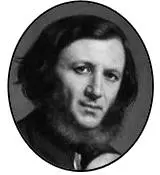
Contents
The Poetry Collections
PAULINE: A FRAGMENT OF A CONFESSION
SORDELLO
BELLS AND POMEGRANATES NO. III: DRAMATIC LYRICS
BELLS AND POMEGRANATES NO. VII: DRAMATIC ROMANCES AND LYRICS
CHRISTMAS-EVE AND EASTER-DAY
MEN AND WOMEN
DRAMATIS PERSONAE
THE RING AND THE BOOK
BALAUSTION’S ADVENTURE
PRINCE HOHENSTIEL-SCHWANGAU, SAVIOUR OF SOCIETY
FIFINE AT THE FAIR
RED COTTON NIGHT-CAP COUNTRY
ARISTOPHANES’ APOLOGY
THE INN ALBUM
PACCHIAROTTO, AND HOW HE WORKED IN DISTEMPER
LA SAISIAZ AND THE TWO POETS OF CROISIC
DRAMATIC IDYLLS
DRAMATIC IDYLLS: SECOND SERIES
JOCOSERIA
FERISHTAH’S FANCIES
PARLEYINGS WITH CERTAIN PEOPLE OF IMPORTANCE IN THEIR DAY
ASOLANDO
The Poems
LIST OF POEMS IN CHRONOLOGICAL ORDER
LIST OF POEMS IN ALPHABETICAL ORDER
The Plays
PARACELSUS
STRAFFORD
BELLS AND POMEGRANATES NO. I: PIPPA PASSES
BELLS AND POMEGRANATES NO. II: KING VICTOR AND KING CHARLES
BELLS AND POMEGRANATES NO. IV: THE RETURN OF THE DRUSES
BELLS AND POMEGRANATES NO. V: A BLOT IN THE ‘SCUTCHEON
BELLS AND POMEGRANATES NO. VI: COLOMBE’S BIRTHDAY
BELLS AND POMEGRANATES NO. VIII: LURIA AND A SOUL’S TRAGEDY
HERAKLES
THE AGAMEMNON OF AESCHYLUS
The Letters
LIST OF LETTERS FROM 1845 TO 1846
The Biographies
ROBERT BROWNING by G.K. Chesterton
LIFE OF ROBERT BROWNING by William Sharp
LIFE AND LETTERS OF ROBERT BROWNING by Mrs. Sutherland Orr

©
Delphi Classics 2012
Version 1
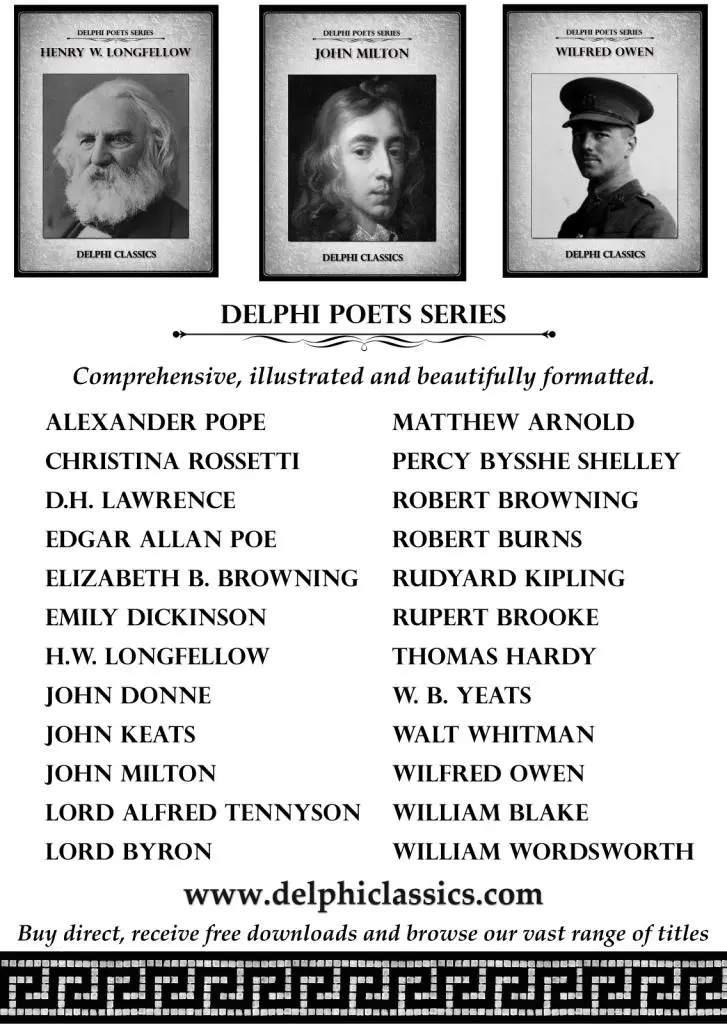

ROBERT BROWNING
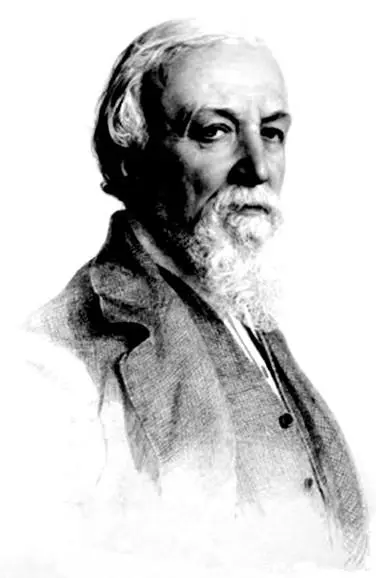
By Delphi Classics, 2012
NOTE

When reading poetry on an eReader, it is advisable to use a small font size, which will allow the lines of poetry to display correctly.
The Poetry Collections

Southampton Way, Camberwell, London — Browning’s birthplace
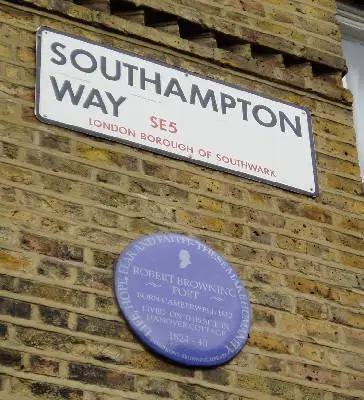
A plaque marking the site of the cottage where the poet was born
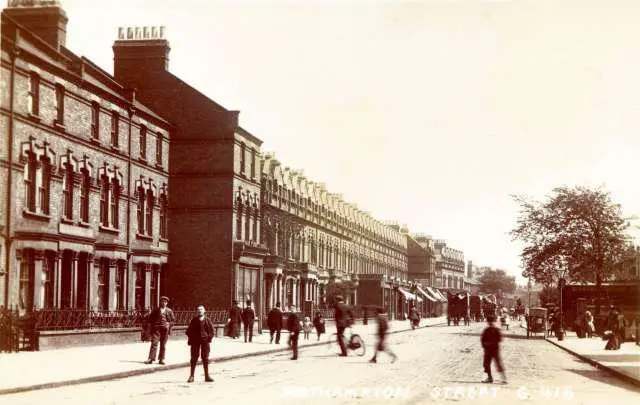
Southampton Way in 1904
PAULINE: A FRAGMENT OF A CONFESSION

Due to his mastery of dramatic verse, particularly excelling in the composition of dramatic monologues, Robert Browning (1812-1889) became one of the foremost poets of the Victorian Age. Born in Camberwell, South London, Browning enjoyed a secure upbringing, his father being a well-paid clerk for the Bank of England, as well as a literary collector, who amassed a library of over 6,000 books, many of them being rare works. Therefore, Robert was immersed in literature from a young age, his father, as well as his mother, a talented musician, encouraging his interest in literature and the arts.
By the age of twelve, Browning had written a book of poetry, which he later destroyed when no publisher could be found. After attending two private schools, revealing an overwhelming dislike for school life, he was educated at home by a tutor, aided also by his father’s extensive library. Aged fourteen, he was fluent in French, Greek, Italian and Latin. He became a great admirer of the Romantic poets, especially Shelley, mirroring his hero by also becoming an atheist and vegetarian, though he renounced these ideas later on. At the age of sixteen, Browning studied Greek at University College London, but left after his first year. From then on, he refused a formal career, ignoring his parents’ protests and dedicating his life to poetry.
In March of 1833, Browning found a publisher for Pauline, A Fragment of a Confession, which appeared anonymously at the expense of the hopeful poet. It is a long poem, composed in homage to Shelley, in part emulating the Romantic poet’s style. Originally Browning intended Pauline to be the first of a series of poems written from the viewpoint of different aspects of his personality, but he soon abandoned this idea.
At the time of its first publication, the poem received some positive attention, though in later years Browning claimed to be embarrassed by it, only including Pauline in his collected poems of 1868 after substantial revisions.
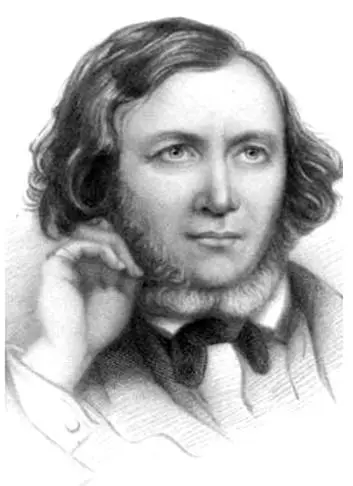
Browning, close to the time of publishing his first poetry collection
PAULINE
Plus ne suis ce que j’ai été,
Et ne le sçaurois jamais être. — MAROT.
Non dubito, quip titulus libri nostri raritate suâ quamplurimos alliciat ad legendum: inter quos nonnulli obliquæ opinionis, mente languidi, multi etiam maligni, et in ingenium nostrum ingrati accedent, qui temerariâ suâ ignorantiâ, vix conspecto titulo clamabunt: Nos vetita docere, hæresium semina jacere: piis auribus offendiculo, præclaris ingeniis scandalo esse: . . . adeò conscientiæ suæ consulentes, ut nec Apollo, nec Musæ omnes, neque Angelus de cælo me ab illorum execratione vindicare queant: quibus et ego nunc consulo, ne scripta nostra legant, nec intelligant, nec neminerint: nam noxia sunt, venenosa sunt: Acherontis ostium est in hoc libro, lapides loquitur, caveant, ne cerebrum illis excutiat. Vos autem, qui æquâ mente ad legendum venitis, si tantam prutentiæ discretionem adhibueritis, quantam in melle legendo apes, jam securi legite. Puto namque vos et utilitatis haud parùm et voluptatis plurimùm accepturos. Quod si qua repereritis, quæ vobis non placeant, mittite illa, nec utimini. NAM ET EGO VOBIS ILLA NON PROBO, SED NARRO. Cœtera tamen propterea non respute . . . Ideo, si quid liberius dictum sit, ignoscite adolescentiæ nostræ, qui minor quam adolescens hoc opus composui. — H. Cor. Agrippa, De Occult. Phil.
London, January, 1833.
V. A. XX.
PAULINE, mine own, bend o’er me — thy soft breast
Shall pant to mine — bend o’er me — thy sweet eyes,
And loosened hair, and breathing lips, arms
Drawing me to thee — these build up a screen
To shut me in with thee, and from all fear,
So that I might unlock the sleepless brood
Of fancies from my soul, their lurking place,
Nor doubt that each would pass, ne’er to return
To one so watched, so loved, and so secured.
But what can guard thee but thy naked love?
Ah, dearest; whoso sucks a poisoned wound
Envenoms his own veins, — thou art so good,
So calm — if thou should’st wear a brow less light
For some wild thought which, but for me, were kept
From out thy soul, as from a sacred star.
Yet till I have unlocked them it were vain
To hope to sing; some woe would light on me;
Nature would point at one, whose quivering lip
Was bathed in her enchantments — whose brow burned
Beneath the crown, to which her secrets knelt;
Who learned the spell which can call up the dead,
And then departed, smiling like a fiend
Who has deceived God. If such one should seek
Again her altars, and stand robed and crowned
Amid the faithful: sad confession first,
Remorse and pardon, and old claims renewed,
Ere I can be — as I shall be no more.
I had been spared this shame, if I had sate
By thee for ever, from the first, in place
Of my wild dreams of beauty and of good,
Or with them, as an earnest of their truth.
No thought nor hope, having been shut from thee,
No vague wish unexplained — no wandering aim
Sent back to bind on Fancy’s wings, and seek
Some strange fair world, where it might be a law;
But doubting nothing, had been led by thee,
Thro’ youth, and saved, as one at length awaked,
Who has slept thro’ a peril.
1 comment